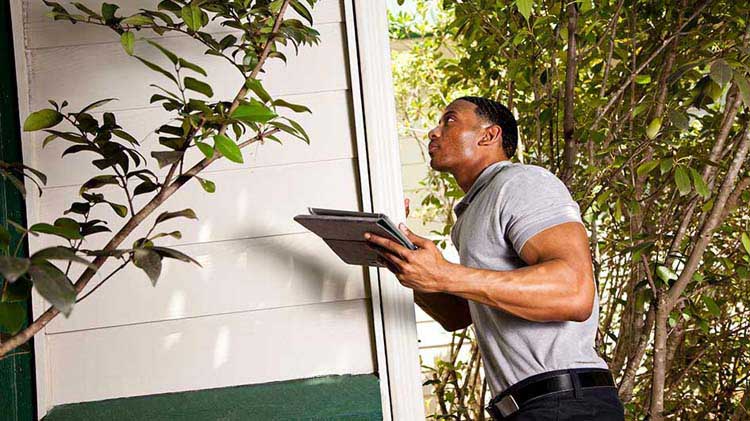What Is a Tree Inspection? (And Why You Need One)
When it comes to living a safe and comfortable life, inspections are essential. Think about it. From buying a home to maintaining a car, inspections are a standard and widespread practice. Even restaurants, aircraft, and your own teeth require routine inspections.
While these things are extremely different, they all need regular checkups to stay safe. That’s because inspections are designed to detect existing and potential issues before they turn into bigger problems.
Your trees are no exception. Yes, that’s right: Trees need inspections, too. When performed by a professional tree expert, a tree inspection will help your trees thrive in the best way possible.
What is a Tree Inspection?
A tree inspection involves a careful examination of your trees. It’s done by arborists, like the ones at Friendly Tree.
During the inspection, your arborist will evaluate the tree’s structure and surrounding soil. They’ll also determine the tree’s overall health by inspecting its bark, branches, and more.
Why You Need Tree Inspections
A tree inspection is like a routine checkup with the doctor. It measures the most basic aspects of health, which can indicate bigger problems or risks. Specifically, a tree inspection can:
1. Diagnose Tree Infections Early
Like an annual doctor’s appointment, inspections look for signs of disease. This includes infections caused by bacteria, fungi, or insects.
A certified arborist knows precisely what to look for. They’ll consider regional diseases and pests, which can help them diagnose issues sooner rather than later.
2. Identify Structural Damage
Physical damage due to construction, storms, or incorrect tree pruning can be identified during an inspection. This is crucial for the tree’s health, as structural problems can make it difficult for the tree to take in oxygen and water.
3. Improve Safety
By identifying disease and damage, a tree inspection protects both humans and pets. A damaged tree, after all, is more likely to break or fall. This poses a hazard to residents and buildings alike.
4. Determine Watering Needs
If you’ve never consulted a tree arborist, or if you recently planted a new tree, a tree inspection will help you plan a proper watering routine.
An arborist can create a personalized watering guide based on the type of tree, its age, and upcoming seasons. Depending on your previous watering habits, this might involve more or less water or a specific schedule.
4. Establish Soil Requirements
Likewise, a tree inspection helps you determine the best soil for your trees. Good soil is vital for healthy and happy trees. The examination can also shed light on the ideal fertilizer and mulch for your trees.
Friendly Tree Offers Comprehensive Tree Inspections in New Jersey
In a nutshell, tree inspections are essential for tree health and safety. It also doesn’t hurt that they’ll save you money in the long run, as each inspection allows you to fix issues while they’re still manageable.
After the inspection, the arborist will propose the next best steps. They can also provide guidelines for various tree care practices, such as pruning.


